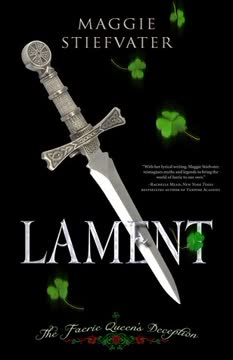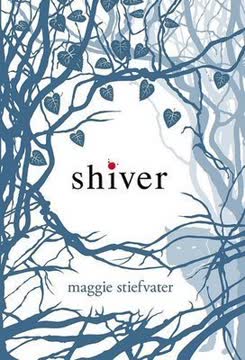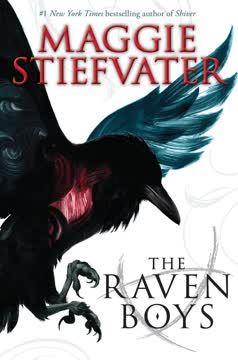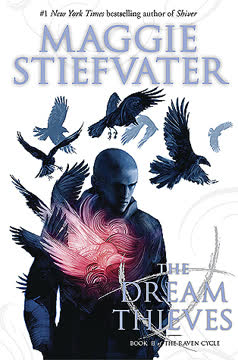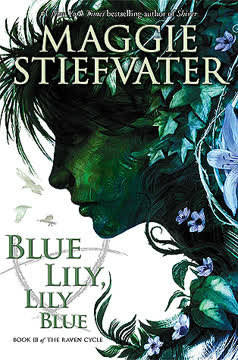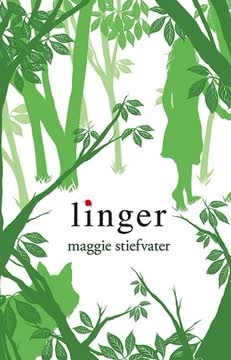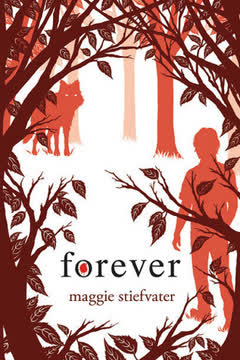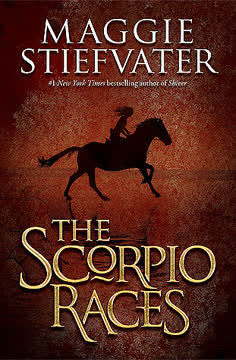Plot Summary
The Musician's Secret Gift
Deirdre Monaghan, a shy, prodigiously talented sixteen-year-old harpist, lives a life overshadowed by nerves and the pressure of public performance. But beneath her ordinary exterior, she harbors an extraordinary secret: she is a cloverhand, someone who can see faeries. This gift, unknown even to herself, begins to manifest through strange dreams, uncanny luck, and the sudden appearance of four-leaf clovers. Deirdre's world, once defined by music and anxiety, is about to be upended by forces she never imagined, as the boundary between the mundane and the magical grows thin.
The Mysterious Flute Player
At a music competition, Deirdre meets Luke Dillon, a mesmerizing, enigmatic boy with a haunting flute and an uncanny knowledge of her. Luke's presence is both comforting and unsettling, and he seems to know more about Deirdre than he should. Their musical connection is immediate and electric, but Luke's interest in Deirdre is shadowed by secrets and a sense of danger. As they perform together, Deirdre's abilities intensify, and she is drawn deeper into a world where music is magic and every note can summon something otherworldly.
Faerie Warnings and Four-Leaf Clovers
Deirdre's life becomes a tapestry of omens: four-leaf clovers appear everywhere, animals act strangely, and she begins to sense presences others cannot. Her best friend James, loyal and witty, tries to help her make sense of the changes, but even he cannot protect her from the faerie world's encroachment. Deirdre's grandmother, Granna, gives her an iron ring for protection, hinting at old family secrets and dangers. The warnings are clear: Deirdre is being watched, and her gift is both a blessing and a curse.
Shadows at the Summer Festival
At a summer festival, Deirdre's growing attraction to Luke is complicated by the appearance of sinister faerie figures—Aodhan, a predatory faerie, and Eleanor, a chillingly beautiful woman with ties to Luke. The festival's bright lights and music mask a deadly undercurrent, as Deirdre realizes she is the target of a faerie hunt. The boundaries between friend and foe blur, and Deirdre must navigate a world where every kindness may hide a trap, and every gift comes with a price.
The Queen's Deadly Game
Deirdre learns that the faerie Queen, a being of immense power and cruelty, has set her sights on her. The Queen's motives are both personal and political: Deirdre's abilities threaten her rule, and her connection to Luke complicates ancient vendettas. Deirdre is caught in a deadly game, manipulated by faerie and human alike, and must decide whom to trust. The Queen's agents, including the Hunter and his hounds, close in, and Deirdre's ordinary life is shattered forever.
Unraveling the Invisible World
With Luke as her reluctant guide, Deirdre begins to understand the rules and dangers of the faerie world. Iron protects, names have power, and music can both bind and free. Deirdre's telekinetic abilities grow, and she discovers she can move objects—and even influence the world—through will and song. But every use of her power draws her deeper into faerie politics and closer to the Queen's wrath. The cost of seeing is steep, and Deirdre must balance her desire for love and belonging with the need for survival.
The Price of Seeing
Deirdre's gift isolates her from her family and friends, and the faerie world's dangers become personal. Granna is struck down by faerie magic, and James is targeted for his loyalty. Deirdre's own family history is revealed to be entwined with faerie bargains and betrayals. The more Deirdre sees, the more she realizes that her gift is a beacon for both wonder and destruction. The Queen's threats escalate, and Deirdre is forced to confront the reality that she may have to sacrifice everything she loves to survive.
The Hunter and the Hounds
The Queen unleashes her most fearsome servant, the Hunter, and his pack of white hounds to pursue Deirdre. Betrayed by her own aunt Delia, who made a faerie bargain for her voice and life, Deirdre is forced to flee through fields and forests, using her wits and growing powers to evade capture. The chase is relentless, and Deirdre's only hope lies in the ancient protections of iron, the help of faerie outcasts, and her own courage. The solstice approaches, and with it, the final confrontation.
Betrayal in the Bloodline
Deirdre learns that her family's history is riddled with faerie bargains: her aunt Delia's life and talent were bought at the cost of another's suffering, and her own mother's past is shadowed by faerie encounters. The iron ring, the four-leaf clovers, and the family's musical gifts are all part of a legacy of both protection and peril. Deirdre must come to terms with the fact that her greatest threats—and her greatest strengths—are rooted in her own bloodline.
The Solstice Approaches
As the summer solstice nears, the veil between worlds thins, and faerie power reaches its peak. Deirdre, armed with knowledge, iron, and the loyalty of a few faerie allies, prepares for the Queen's final move. The school auditorium, site of her first public performance with Luke, becomes the stage for a supernatural showdown. The Queen's forces gather, and Deirdre must decide whether to fight, flee, or bargain for the lives of those she loves.
The Queen's Decree
The Queen demands Deirdre's death, seeing her as a rival and a threat to her rule. Deirdre is forced to witness the Queen's cruelty firsthand, as her friends are tortured and her own powers are stripped away by the use of her true name. The Queen's court is a place of beauty and horror, and Deirdre must use every ounce of cunning and courage to survive. The cost of defiance is high, and the Queen's vengeance is absolute.
The Choice of Sacrifice
Given the chance to save one life—her beloved Luke or her best friend James—Deirdre faces an impossible choice. The faerie code of balance demands a life for a life, and Deirdre's selflessness is tested to its limit. In a moment of clarity, she chooses to save James, sacrificing her own happiness and the possibility of a future with Luke. The act of sacrifice becomes the turning point in the battle for her soul and the fate of the faerie world.
The Soul in the Cage
Luke's tragic past is revealed: once human, he was stolen by the Queen, his soul caged and his will bound to her service as an immortal assassin. The Queen's power over him is absolute, and only the return of his soul can free him. Deirdre, with the help of faerie allies, wins the right to release Luke's soul, but the cost is the end of their time together. The act of freeing Luke is both an act of love and a final farewell.
The New Queen Ascends
With the Queen overthrown by her own subjects, Eleanor ascends as the new Queen of the faeries. The old order is shattered, and the balance of power shifts. Eleanor's rule promises change, but her motives remain ambiguous. Deirdre is released from the Queen's vendetta, but the scars of the battle remain. The faerie world is forever altered, and Deirdre's place in it is uncertain.
The Last Song of Summer
With the solstice's magic still in the air, Deirdre and Luke share one last night together, playing music that bridges the worlds of human and faerie. The music is both a celebration and a farewell, a testament to the power of love, art, and sacrifice. As the night fades, so does the magic, and Deirdre is left to face the ordinary world forever changed.
Love and Loss Intertwined
The aftermath of the solstice leaves Deirdre changed: she has lost her grandmother, her innocence, and her first love, but gained a deeper understanding of herself and her place in the world. The pain of loss is tempered by the knowledge that love, even when fleeting, is worth the risk. Deirdre's journey from invisibility to self-acceptance is complete, but the scars of her choices remain.
The Power of Names
Throughout her journey, Deirdre learns that names hold power—over faeries, over fate, and over oneself. The act of naming, of claiming one's identity, becomes the key to survival and victory. Deirdre's refusal to be defined by others, and her ultimate act of self-naming, breaks the Queen's hold and sets her free. The lesson is clear: to know and name oneself is the greatest magic of all.
The End at the Beginning
As the summer ends, Deirdre stands at the threshold of a new life. The world is still full of danger and wonder, but she is no longer afraid. The story that began with a song and a secret ends with the promise of new beginnings, as Deirdre embraces her gifts, her losses, and her future. The faerie world recedes, but its lessons remain, echoing in every note of her music and every beat of her heart.
Characters
Deirdre Monaghan
Deirdre is a shy, talented harpist whose life is defined by anxiety and a longing for something more. Her journey from invisibility to self-acceptance is the heart of the story. As a cloverhand, she can see faeries, but this gift isolates her and makes her a target. Deirdre's relationships—with her family, her best friend James, and the enigmatic Luke—are marked by loyalty, longing, and sacrifice. Psychologically, Deirdre is driven by a desire to be seen and valued for who she is, not just for her talent. Her development is a gradual awakening to her own power, agency, and worth, culminating in acts of courage and selflessness that define her as a true heroine.
Luke Dillon
Luke is a mysterious, alluring figure whose charm and musical talent mask a tragic past. Once human, he was stolen by the faerie Queen, his soul caged and his will bound to her service as an immortal assassin. Luke's relationship with Deirdre is both a source of hope and a reminder of his own lost humanity. Psychologically, Luke is tormented by guilt, longing for freedom, and the fear that he is irredeemable. His love for Deirdre is transformative, giving him the strength to defy the Queen and seek redemption. Luke's journey is one of self-forgiveness and the reclaiming of his soul, even at the cost of his own happiness.
James Morgan
James is Deirdre's best friend, a wisecracking, fiercely loyal companion who provides both comic relief and emotional grounding. Beneath his humor lies a deep sensitivity and a latent psychic gift that connects him to the faerie world. James's unrequited love for Deirdre adds complexity to their friendship, and his willingness to risk everything for her is a testament to his character. Psychologically, James struggles with feelings of inadequacy and the pain of loving someone he cannot have, but his loyalty and courage make him indispensable to Deirdre's journey.
The Faerie Queen (Deirdre O'Brien)
The Queen is the story's primary antagonist, a once-human woman whose power and immortality have twisted her into a being of cruelty and paranoia. Her obsession with control, her fear of rivals, and her inability to accept love drive the plot's central conflict. Psychologically, the Queen is a study in the dangers of unchecked power and the loss of humanity. Her relationship with Luke is both possessive and tragic, and her vendetta against Deirdre is rooted in her own insecurities and need for validation.
Eleanor
Eleanor is a beautiful, enigmatic faerie whose motives are never entirely clear. She serves the Queen but is not above manipulating events for her own gain. With the Queen's fall, Eleanor ascends as the new ruler of the faeries, promising change but remaining inscrutable. Psychologically, Eleanor embodies the faerie world's amoral, capricious nature—capable of both kindness and cruelty, always playing her own game.
Aodhan (Freckle Freak)
Aodhan is a sinister, predatory faerie who delights in tormenting Deirdre and serves as the Queen's agent. His beauty is a mask for his cruelty, and his pursuit of Deirdre is both personal and political. Psychologically, Aodhan represents the seductive danger of the faerie world—a reminder that not all that is beautiful is good.
Granna
Deirdre's grandmother is a wise, practical woman who understands the dangers of the faerie world and tries to protect her family with iron and old knowledge. Her death is a turning point for Deirdre, forcing her to confront the reality of faerie threats and the cost of family secrets. Psychologically, Granna is a stabilizing force, embodying the strength and resilience of women who survive by knowing when to fight and when to yield.
Delia
Delia is Deirdre's aunt, a talented singer whose life and voice were bought through a faerie bargain. Her betrayal of Deirdre is rooted in jealousy, ambition, and a desperate desire to hold onto what was never truly hers. Psychologically, Delia is a cautionary figure, illustrating the dangers of making deals with forces beyond one's understanding.
The Hunter
The Hunter is the Queen's most fearsome servant, a being of ancient power who hunts Deirdre with his pack of white hounds. He is both a force of nature and a symbol of the inescapable consequences of faerie bargains. Psychologically, the Hunter represents fate and inevitability—the price that must be paid for every gift.
Brendan and Una (Daoine Sidhe)
Brendan and Una are members of the Daoine Sidhe, faeries of music and rebellion who refuse allegiance to the Queen. They offer Deirdre both help and riddles, embodying the faerie world's love of bargains, music, and ambiguity. Psychologically, they represent the possibility of resistance and the power of art to transcend even the darkest magic.
Plot Devices
Music as Magic
Music is both literal and metaphorical magic in the story, serving as the means by which Deirdre and Luke connect, the way faeries are summoned, and the key to both danger and salvation. The act of playing, singing, and improvising is a metaphor for agency, creativity, and the power to shape one's own destiny. Music is also a weapon, a shield, and a language that transcends the boundaries between human and faerie.
The Power of Names
The story repeatedly emphasizes the importance of names: knowing a faerie's true name grants power over them, while giving one's own name can be a source of vulnerability. The Queen's use of Deirdre's name to strip her of power, and Deirdre's discovery of the Queen's true name, are pivotal moments. This device underscores themes of identity, self-knowledge, and the dangers of being defined by others.
Iron and Four-Leaf Clovers
Last updated:
FAQ
Synopsis & Basic Details
What is Lament: The Faerie Queen's Deception about?
- A Musician's Unveiling: Sixteen-year-old Deirdre Monaghan, a gifted harpist plagued by performance anxiety, discovers she is a "cloverhand," able to perceive the hidden world of faeries, a gift that thrusts her into an ancient conflict. Her ordinary life is irrevocably altered as she grapples with newfound telekinetic abilities and the terrifying reality of supernatural beings.
- Forbidden Faerie Romance: Deirdre becomes entangled with Luke Dillon, a mysterious and alluring flute player who seems to know more about her and the faerie world than he lets on. Their intense connection is complicated by Luke's own dark secrets and his unwilling servitude to the tyrannical Faerie Queen, who views Deirdre as a threat.
- Survival in a Hidden War: As the summer solstice approaches, thinning the veil between worlds, Deirdre must navigate a treacherous landscape of faerie politics, ancient bargains, and personal betrayals. With her best friend James and grandmother Granna caught in the crossfire, Deirdre must embrace her extraordinary powers to protect those she loves and confront the malevolent Queen.
Why should I read Lament: The Faerie Queen's Deception?
- Rich Irish Folklore: Dive into a world steeped in authentic Irish mythology, where faeries are not whimsical sprites but dangerous, ancient beings with complex rules and cruel games. The novel offers a fresh, darker take on traditional faerie lore, making it a compelling read for fans of urban fantasy and Celtic mythology.
- Deep Emotional Resonance: Experience a coming-of-age story that explores themes of identity, self-acceptance, and the courage to embrace one's true self, even when it's "extraordinary." Deirdre's journey from shy invisibility to powerful agency, coupled with a poignant, star-crossed romance, provides a powerful emotional core.
- Stiefvater's Lyrical Prose: Maggie Stiefvater's distinctive writing style, characterized by evocative imagery, musicality, and sharp wit, draws readers into Deirdre's sensory world. The narrative seamlessly blends the mundane with the magical, creating an immersive experience that lingers long after the final page.
What is the background of Lament: The Faerie Queen's Deception?
- Suburban Virginia Setting: The story is primarily set in Woodbury, Minnesota, and Richmond, Virginia, grounding the fantastical elements in a familiar, contemporary American landscape. This contrast highlights the insidious way the faerie world encroaches upon ordinary human lives, making the supernatural feel more immediate and threatening.
- Ancient Faerie History: The narrative reveals a deep, cyclical history of faerie interaction with humanity, particularly through "cloverhands" like Deirdre and the Faerie Queen herself. This background establishes a long-standing conflict and a pattern of human-faerie relationships, where power, music, and names hold immense significance.
- Irish Mythological Roots: The book draws heavily from Irish folklore, featuring creatures like the Daoine Sidhe, the gallowglass, and allusions to legends like Deirdre of the Sorrows and Thomas Rhymer. This rich cultural tapestry provides a complex framework for the faerie world's rules, motivations, and ancient grudges, enriching the world-building beyond typical fantasy tropes.
What are the most memorable quotes in Lament: The Faerie Queen's Deception?
- "You're a baby. You don't know how much trouble I can get into." (Luke, Chapter 6): This quote encapsulates Luke's protective yet self-deprecating nature, hinting at the immense, violent past he carries. It foreshadows the depth of his suffering and the dangerous world he inhabits, while also revealing his tender concern for Deirdre's innocence.
- "I'm going to hell no matter what happens. Let me have my pathetic hopeless love while I can. Just—let me pretend it will turn out all right." (Luke, Chapter 15): This desperate plea from Luke reveals the profound tragedy of his existence and the depth of his love for Deirdre. It highlights the theme of sacrifice and the idea that even a brief moment of genuine connection is worth eternal damnation for a soul-bound assassin.
- "You are still not strong enough to control the fey. You are weak unless it is full dark. But we don't have to do battle … I can teach you. I can teach you how to find the darkness that hides in the corners of rooms. To harness the night that is caught beneath the tangled branches of a tree. To find the darkness that's in you all the time. I can make you more than you are." (The Queen, Chapter 20): This chilling offer from the Queen to Deirdre directly challenges Deirdre's identity and power, tempting her with a darker path. It underscores the central theme of embracing one's inner strength and choosing one's own destiny, rather than succumbing to external influence or power.
What writing style, narrative choices, and literary techniques does Maggie Stiefvater use?
- Sensory-Rich, Lyrical Prose: Stiefvater employs highly descriptive language that appeals to all five senses, particularly sound and smell, to immerse the reader in Deirdre's experience. Phrases like "the familiar smell of my high school... pricked my nerves" (Chapter 1) or the "faintly musky odor—nothing like an herb, nothing like any high-school boy" (Chapter 2) for Luke, create a vivid, almost synesthetic connection to the narrative, enhancing the magical realism.
- First-Person, Introspective Voice: The story is told from Deirdre's perspective, allowing for deep insight into her anxieties, burgeoning powers, and emotional turmoil. Her internal monologue, often self-deprecating yet observant, makes her a relatable protagonist, while her "Dee TV" moments (Chapter 16) provide a unique meta-commentary on her own unfolding drama, highlighting her detachment and eventual re-engagement with her emotions.
- Subtle Foreshadowing and Symbolism: Stiefvater masterfully weaves in subtle clues and recurring motifs that gain significance later, enriching the reader's interpretive experience. The moon in the daytime sky (Chapter 1), the repeated appearance of four-leaf clovers, and the symbolic "dove" representing Luke's soul (Prologue, Chapter 14) are not just plot points but layers of meaning that hint at deeper truths and the interconnectedness of the human and faerie worlds.
Hidden Details & Subtle Connections
What are some minor details that add significant meaning?
- Luke's Eyedrops and Scars: Luke's use of eyedrops to "see everything tonight" (Chapter 1) and the numerous scars on his body, particularly the "huge, white, amorphous shape near his heart" (Chapter 14), are subtle indicators of his non-human nature and past suffering. The eyedrops suggest a constant struggle to perceive the faerie world, while the scars, especially the self-inflicted one, reveal the depth of his torment and attempts to escape his servitude, hinting at his gallowglass identity long before it's explicitly stated.
- Rye's Crimson Ears: Deirdre's dog, Rye, is described as having a "chalky white body and crimson red ears" (Chapter 3), a unique detail that subtly links him to the faerie hounds, who are also white. This detail foreshadows Rye's true nature as a faerie hound and his connection to the supernatural world, suggesting that Deirdre's family has long been intertwined with faerie elements, even in their pets.
- Delia's "Soundless" Approach: Delia's ability to approach Deirdre "soundless" (Chapter 16) is a fleeting detail that hints at her faerie-enhanced abilities and her deeper connection to the faerie world. This seemingly minor observation foreshadows her later betrayal and reveals that her "gift" of voice came with other, more sinister, faerie traits, making her a more formidable and less human antagonist than initially perceived.
What are some subtle foreshadowing and callbacks?
- Deirdre's "Deirdre of the Sorrows" Name: The dream sequence in Chapter 16 explicitly links Deirdre to the Irish legend of "Deirdre of the Sorrows," whose name means "sorrow" and whose story ends in tragedy. This foreshadows the difficult choices and heartbreak Deirdre will face, suggesting a predetermined, tragic path, while also setting up her eventual defiance of this fate by choosing her own name.
- Luke's Car, Bucephalus: Luke naming his old Audi "Bucephalus" (Chapter 6), after Alexander the Great's untamable horse, subtly foreshadows his own untamable nature and his eventual defiance of the Faerie Queen. The car, like Luke, is an "ordinary" vessel with an extraordinary, wild spirit, hinting at his deep-seated resistance to control and his longing for freedom.
- Granna's "Mistook Him" Comment: Granna's assertion that she "mistook him for someone else" (Chapter 3) when referring to Luke, after claiming to have seen him twenty years prior, is a subtle callback to the faerie's unchanging nature. This detail hints at Luke's immortality and his long history of interaction with Deirdre's family, suggesting a deeper, generational connection to the faerie world than Deirdre initially realizes.
What are some unexpected character connections?
- Deirdre and the Faerie Queen's Shared Name: The revelation that the Faerie Queen's true name is "Deirdre O'Brien" (Chapter 20) creates a profound and unexpected connection between protagonist and antagonist. This shared name, and the Queen's past as a "cloverhand" like Deirdre, establishes a parallel between their destinies, highlighting the Queen as a cautionary tale of what Deirdre could become if she succumbs to unchecked power and bitterness.
- Delia's Faerie Bargain and Mom's Past: Delia's confession that her voice and life were a result of a faerie bargain (Chapter 17), and Mom's cryptic remarks about "wet feet" and "dreams" (Chapter 13), reveal a deeper, generational entanglement with the faerie world within Deirdre's family. This connection explains their musical talents and Granna's protective measures, showing that Deirdre's "gift" is not an isolated incident but a recurring pattern in her bloodline.
- James's Latent Psychic Abilities: James's "spidey sense" and "weird feelings" (Chapter 3), which allow him to sense Deirdre's distress and Granna's trouble, reveal his own latent psychic connection to the faerie world. This unexpected ability elevates him beyond a mere sidekick, making him a "freak" in his own right and deepening his bond with Deirdre, as they both navigate their extraordinary gifts.
Psychological, Emotional, & Relational Analysis
What are some unspoken motivations of the characters?
- Luke's Desire for Redemption: Beneath his stoic demeanor, Luke is driven by a profound, unspoken desire for redemption from the "blood on his hands" (Chapter 15). His fascination with Deirdre stems not just from attraction, but from her inherent goodness and the possibility she represents for his own salvation, a chance to "make it mean something" (Chapter 22) after centuries of forced cruelty.
- Deirdre's Longing for Authenticity: Deirdre's initial shyness and desire for "invisibility" mask a deep longing to be seen and valued for her true self, beyond her musical talent. Her frustration with being called "ordinary" (Chapter 5) by Sara, and her subsequent assertion of her "fascinating" nature, reveals a core motivation to define her own identity and worth, independent of external validation.
- The Queen's Fear of Irrelevance: The Faerie Queen's relentless pursuit of Deirdre and her obsession with control are rooted in an unspoken fear of losing her power and becoming irrelevant. Her scornful dismissal of Deirdre as "nothing" (Chapter 20) betrays her own insecurity, as Deirdre's burgeoning power and human capacity for love directly challenge the Queen's ancient, loveless existence.
What psychological complexities do the characters exhibit?
- Deirdre's Katagelophobia and Empowerment: Deirdre's severe katagelophobia (fear of public humiliation), manifesting as vomiting before performances, highlights her deep-seated anxiety and struggle with vulnerability. Her journey involves confronting this fear, not by curing it, but by transforming it into a source of power and defiance, as seen when she "felt like kicking some music-geek ass" (Chapter 1) on stage with Luke.
- Luke's Traumatic Detachment: Luke exhibits profound psychological trauma from centuries of forced assassinations, leading to a detached, almost nihilistic view of his own existence. His "dead expression" (Chapter 14) when recalling his past and his self-inflicted wounds reveal a deep self-loathing and a struggle to reconcile his actions with his inherent humanity, making his love for Deirdre a desperate anchor.
- The Queen's Paranoid Narcissism: The Faerie Queen's character is a study in paranoid narcissism, driven by an insatiable need for adoration and control. Her inability to tolerate rivals ("She kills anyone else who pulls Them like she does," Chapter 17) and her belief that her subjects "love" her despite her cruelty, reveal a distorted self-perception and a profound psychological isolation born of her immortality and power.
What are the major emotional turning points?
- Deirdre's First Improvisation: The moment Deirdre improvises on stage with Luke, feeling "a decision to take control and make the tune my own" (Chapter 1), marks a significant emotional turning point. It's her first conscious act of agency, breaking free from her ingrained performance anxiety and setting her on a path of self-discovery and empowerment, fueled by Luke's encouragement.
- Luke's Confession of Love: Luke's flat, matter-of-fact declaration, "I love her" (Chapter 12), to Eleanor, despite the dire consequences, is a pivotal emotional climax. This act of defiance, born of genuine affection, breaks his centuries-long servitude to the Queen and reveals the depth of his humanity, transforming his relationship with Deirdre from one of fascination to profound, sacrificial love.
- Deirdre's Choice to Save James: Faced with the impossible choice between saving Luke's soul and James's life, Deirdre's decision to save James (Chapter 21) is a powerful emotional turning point. This selfless act, prioritizing her friend's life over her own romantic desires, demonstrates her growth, compassion, and the true measure of her heroism, solidifying her identity as a protector rather than a pawn.
How do relationship dynamics evolve?
- Deirdre and James: From Best Friends to Unrequited Love: Their relationship evolves from a comfortable, platonic best friendship, where James provides comic relief and emotional support, to one complicated by James's unspoken love for Deirdre. His text message, "d. i love u." (Chapter 15), and his willingness to risk his life for her, reveal the depth of his feelings, adding a layer of poignant sacrifice to their bond.
- Deirdre and Her Mother: From Control to Confrontation: Deirdre's relationship with her mother shifts from passive acceptance of her mother's "overbearing fashion" (Chapter 3) and control, to open confrontation. Deirdre's outburst, "I'm tired of doing everything your way" (Chapter 14), marks her assertion of independence, forcing her mother to acknowledge her agency and the emotional distance between them.
- Luke and the Queen: From Enslavement to Defiance: The dynamic between Luke and the Faerie Queen is initially one of absolute power and unwilling servitude, where Luke is her "gallowglass" and "hound" (Chapter 15). His love for Deirdre, however, transforms this into open defiance, culminating in his declaration, "I'm done doing your bidding" (Chapter 20), breaking the ancient bond and choosing freedom, even at the cost of his soul.
- Deirdre and Luke: From Fascination to Sacrificial Love: Their relationship rapidly deepens from initial mutual "fascination" (Chapter 3) and flirtation to a profound, sacrificial love. Luke's willingness to die for Deirdre and Deirdre's choice to save James, knowing it means losing Luke, demonstrate a love that transcends personal desire, becoming a powerful force against the Queen's loveless tyranny.
Interpretation & Debate
Which parts of the story remain ambiguous or open-ended?
- Luke's Ultimate Fate and Future: While Luke's soul is freed and he joins the Daoine Sidhe, his long-term future remains ambiguous. The text states, "You're one of us now. You're bound by music. Music owns you. Music is your life" (Chapter 22), implying a new form of servitude, albeit a willing one. It's unclear if he will ever truly be free of the trauma of his past or if his new existence with the Daoine Sidhe offers genuine happiness beyond his love for music.
- Eleanor's True Intentions as the New Queen: Eleanor's ascension to the Faerie Queen leaves her true motives and the nature of her reign open to interpretation. Her "ambiguous" (Existing Summary) character, capable of both "kindness and cruelty" (Existing Summary), suggests that while the old Queen is gone, the faerie world's inherent capriciousness and danger may persist under new leadership, leaving readers to wonder if Eleanor will be a benevolent or equally manipulative ruler.
- **Deirdre's Future as a Clover
Review Summary
Lament received mixed reviews, with an average rating of 3.66 out of 5. Some readers praised Stiefvater's lyrical writing and the intriguing faerie lore, while others criticized the instant romance and predictable plot. The main character, Deirdre, was polarizing, with some finding her relatable and others considering her unrealistic. Luke, the love interest, was generally well-received. Many readers appreciated the musical elements and the bittersweet ending. Some felt the book had potential but fell short, while others thoroughly enjoyed the story and characters.
Books of Faerie Series
Download PDF
Download EPUB
.epub digital book format is ideal for reading ebooks on phones, tablets, and e-readers.
